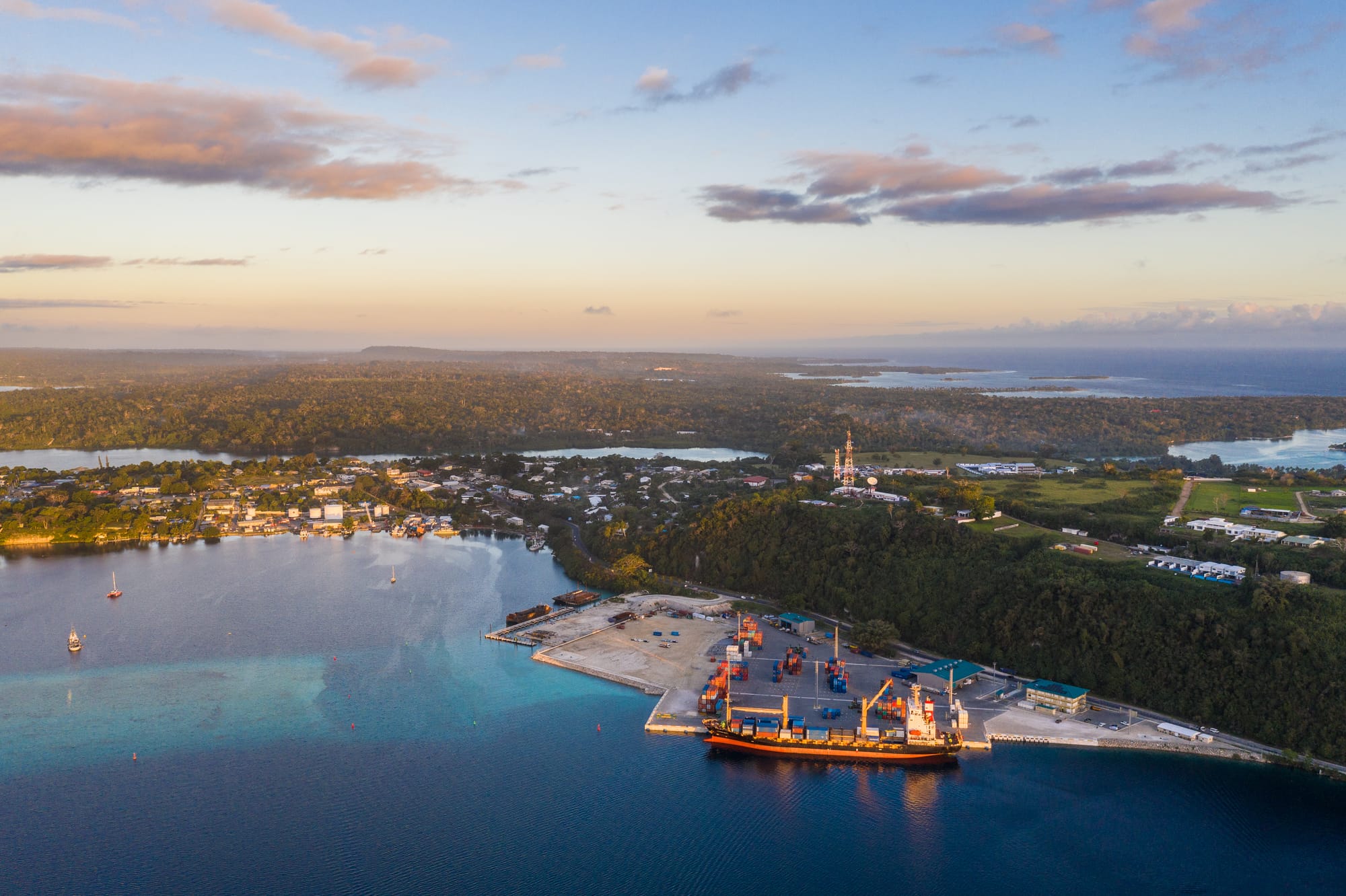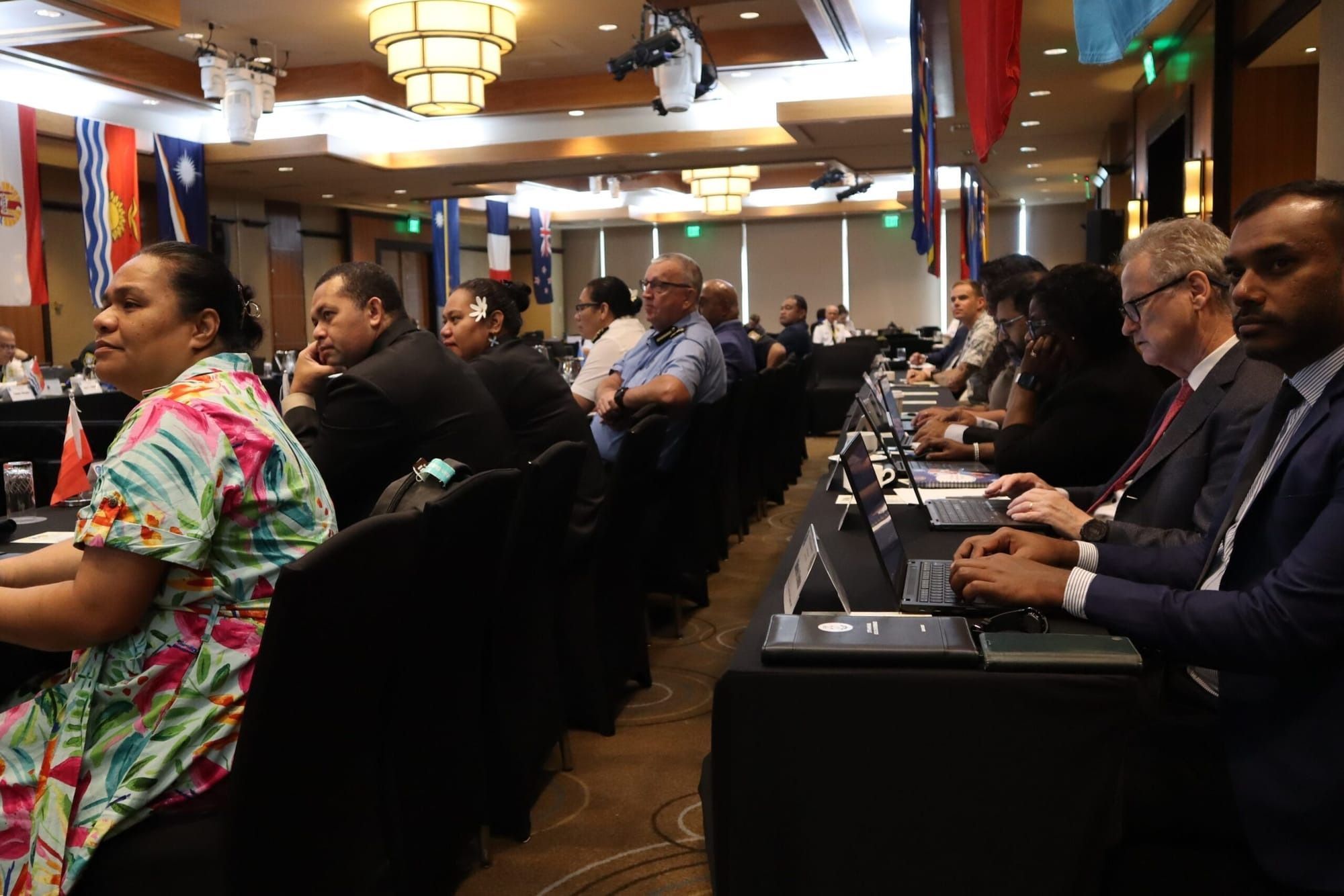Customs cooperation in the Pacific webinar

On 5 June 2025, the CCES Community Network hosted a webinar on Customs Cooperation in the Pacific - Ingredients for Success.
The panelists included:
• Nancy Oraka, Secretariat, Oceania Customs Organisation
• Tevita Tupou, Trade and Customs Advisor UNCTAD.
• Michelle Bond, First Secretary Samoa / Inspector, Australian Border Force.
The key take-aways are outlined below.
1. The Pacific region represents a third of the world’s global mass and unlike land-based borders, the boundaries of Pacific countries are scattered across thousands of islands, archipelagos, and coastal nations. This dispersion creates a complex web of territorial claims, exclusive economic zones (EEZs), and shared maritime spaces.
2. The Pacific is a highly contested region. The panelists discussed security and trans-national crime, revenue collection, climate-related risks, outdated legislation (reference to IP laws and big pharma dumping products) and logistical challenges as providing a volatile, uncertain, complex and ambiguous (VUCA) strategic operating environment for customs administrations.
3. Several examples of effective multi-stakeholder cooperation were highlighted during the webinar including:
- At the recent OCO Annual Conference in Guam OCO Customs administrations embraced new technologies for border security and trade and discussed adopting a regional framework for customs digitalisation, including guidelines for systems interoperability and data sharing.
- The EDF 11 IMPACT Project involving 15 OCO member countries is enhancing customs performance and trade facilitation, leveraging resources and expertise for positive change and automation.
- The Pacific Women’s Professional Development Program (PWPDP), in partnership with the Australian Border Force (ABF) and RMIT University, which empowers women in customs across the Pacific, equipping them with essential skills to navigate challenges in global trade and border security.
- The OCO’s commitment to workforce development including from the Executive level to our Heads of Customs Administrations to middle management and frontline Customs Officer’s through the CCES run Customs Heads Executive Leadership Program, CCES’s Certificate III and Certificate IV training courses and the CCES Corporate Governance, Succession Planning and Mentoring training courses.

Image: Photo from the 27th Oceania Customs Organisation (OCO) Annual Conference in Guam 21-23 May 2025 (Image sourced from www.ocosec.org/)
4. Panelists outlined the importance of building trust, embracing culture, supporting priorities and shared actions to shared threats as being key to effective, long-lasting and mutually beneficial partnerships. They highlighted the importance of Customs Administrations sharing failures, weaknesses and vulnerabilities as a means for building trust and mutual understanding and a foundation for effective partnerships.
5. Digital transformation and modernisation programs do require customs administrations to tread a delicate path, carefully managing the human element for example, monitoring how staff respond and interact with the technology, and whether the sharing and collaboration is leading to the desired outcomes. Panelists recognised digital solutions are more about managing people than managing systems and that often criminal networks deploy far more sophisticated technology. It is a game of catchup.
6. Barriers to collaboration often came back to a lack of trust and understanding, an engrained silo mentality, legislative incompatibility, and unspoken or misunderstood laws or cultures.
7. Panelists agreed that collaboration was everyone’s responsibility no matter where you sat within an organisation. Everyone within customs has an opportunity to influence decisions. No single customs administration can fully address the challenges facing the Pacific. The OCO remains committed to fostering stronger cross-border alliances and mutual assistance programs.
A downloadable version of the takeaways can be accessed below.
Information on the Pacific Women’s Professional Development Program (PWPDP) is available on OCO's website - Pacific Women’s Professional Development Program (PWPDP) - Oceania Customs Organisations.